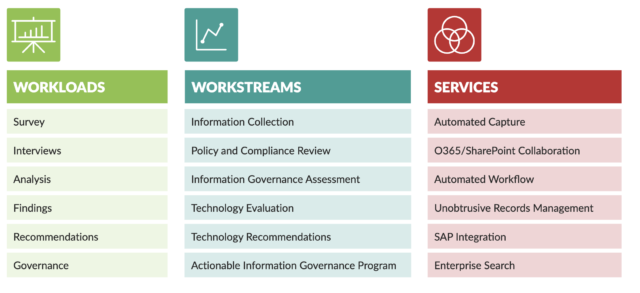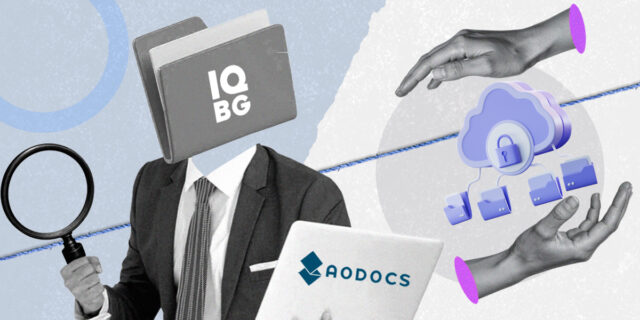Denver Regional Transportation District (RTD)

SOLUTION SUMMARY
IQBG conducted an Enterprise Content and Records Management (ECRM) High-Level Assessment (HLA) of the Denver Regional Transportation District’s (RTD) current and future electronic document and records management requirements. As part of the HLA consulting engagement, IQBG consultants:
- Surveyed representatives across sixteen divisions to assess the current state of information governance
- Supplemented the survey with interviews of representatives from business units and a review of current records, schedules, policies, and procedures
- Guided and documented an inventory of content collections as submitted by program and business unit representatives
- Analyzed current systems and projected applications growth
- Developed an Information Governance Maturity Model (IGMM) Assessment report of findings and recommendations for specific actions to raise maturity
- Developed an overall ECRM strategy and roadmap for the District.

CHALLENGE
RTD continues accumulating and storing large volumes of paper and digital content as part of normal, day-to-day business processes. To perform their jobs effectively, they respond to Colorado Records Act (CORA) and other information requests and ensure that compliance requirements are met. RTD staff need to properly manage, quickly find, and identify the latest versions and easily share and collaborate using this content. Like many large organizations, RTD has struggled with internal silos of information and departments that focus inward and are not in the habit of collaborating. Silos can prevent efficient operations and even lead to safety problems or other major issues if decision-making happens without input from key players in different areas of an organization. Recognizing these challenges, RTD contracted with IQBG, a firm specializing in information governance and enterprise content and records (ECRM) management, to assess its current practices, implement an information governance framework, and develop a strategic plan for managing its content.
SOLUTION STRATEGY
IQBG consultants conducted a survey, backed up by interviews and review of policy, procedure, and work process documentation, performed a records and content inventory, and analyzed the current state of the District’s information governance maturity using the IGMM based on ARMA principles and IQBG’s years of experience. IQBG presented the maturity assessment to District executives that included a Maturity Level Heatmap with an accompanying narrative explanation and a set of actionable recommendations that the District could use to raise its levels of IG maturity. These recommendations were presented in the form of a five-year strategic roadmap, with more granularity of tasks in the first two years and with projects and tasks prioritized based on the value they produced for the District. Tasks included technology enhancements, and technology standardization, addressed gaps in functionality and components, included change management and communications planning and attended to governance framework and organizational issues.

RESULTS:
Improved enterprise information governance based on a realistic, actionable, five-year strategic plan using ECRM, integration of ECRM and ERP, integration of ECRM and line-of-business systems, taxonomy design to support unobtrusive, automated records management and to raise information governance maturity District-wide. A Digitization plan guided the scanning and disposition of legacy permit, engineering, planning, construction, and survey information. A change management and communications plan guided recognition of the importance of the IG Program and support for the projects and tasks on the Strategic Roadmap.
Functionality including OCR/ICR, eForms, automated workflow, integration with GIS and business systems, raised productivity, reduced turnaround times, improved service levels, and provided eGovernment functionality to District constituents. Information Governance was implemented for the entire information lifecycle from capture through disposition or archive. Roadmap recommendations based on best practice approaches and technology standardization, including standardized taxonomy and architecture, moved RTD to a much higher level of information governance maturity, digital processing, and regulatory compliance.
RTD (staff, partners, and constituents) now takes advantage of the following:
- Self-service applications and access to associated records
- Greater transparency across all business processes
- Highly functional search capabilities
- Less time spent entering metadata or declaring records and more time doing work tasks
- Easier access to information and support for collaboration
- Automated retention and disposition processes
- Better management and tracking of engineering processes
- Alignment between information governance tools, organization, and policy.
- Topics:
- Case Study










